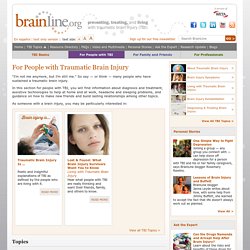

The Opposite Side of Dopamine: The D2 Receptor. When most people think of dopamine, they think of things that can get you high.

Things that feel good. Cocaine. Sex. Food. We imagine floods of dopamine in our brains as the pleasurable feelings take hold. And sure, sometimes it does. This current paper looks at the way we look at D2 receptor function. Bello, et al. In order to understand how the D2 receptors these authors are looking at work, we're going to have to go back to the basics of neurotransmission (for a more detailed explanation, see my SCIENCE 101 post here).
(Source) What we're looking at here is a synapse, the space between one neuron and another where a signal has to get passed along. You can also see the little pink flip things on the presynaptic neuron. But there's something missing in this charming picture, where it's been left out for simplification. Of course, we THINK that's what happens. But that was then. But what does it mean behaviorally? It means these Dopamine neuron D2 knockout mice like to move it move it! Reality and Consciousness: About The Zone. The Insight team is a free and confidential Early Intervention Service offering support to people aged 18 - 35 years who may be experiencing symptoms of early psychosis.

What is Psychosis? Psychosis describes a condition that affects the mind. People experiencing psychosis often have unusual experiences such as: Receiving messages from TV/radioHearing voices or seeing things that aren't really thereThoughts which have become too fast or too slowDifficulty keeping up with conversations. Who is ‘Insight’ for? The Insight team works with people aged 18 – 35 years living within Plymouth, who appear to be experiencing symptoms indicating the early onset of a psychotic episode. People who are referred to the Insight team have often experienced voices and visions that they cannot find explanations for; a sense of paranoia, loss or disturbance to memory or ability to concentrate, or a feeling that on occasions, their thoughts are somehow in turmoil. How do I make a referral to the Insight team? Transitional Rehabilitation Unit Ltd. Resources for People with Traumatic Brain Injury (TBI) - BrainLine.org.
“I’m not me anymore, but I’m still me.”

So say — or think — many people who have sustained a traumatic brain injury. In this section for people with TBI, you will find information about diagnosis and treatment, assistive technologies to help at home and at work, headache and sleeping problems, and guidance on how to make new friends and build lasting relationships among other topics. As someone with a brain injury, you may be particularly interested in: Topics About Traumatic Brain Injury Any injury to the brain from an external force is a TBI. Traumatic Brain Injury BasicsBrain injury affects the roots of who we are — our ability to think, communicate, and connect with other people. Behavioral and Emotional Symptoms The parts of the brain most frequently damaged in a TBI are the frontal lobes.
Concussion / Mild TBI A blow or jolt to the head can disrupt the normal function of the brain. Diagnosing and Treating TBI Living with Traumatic Brain Injury We hope you'll visit BrainLine often. Genes to Cognition Online. Brain Games & Brain Training.